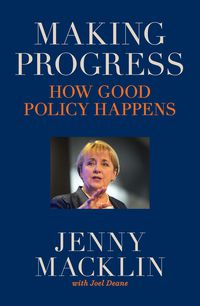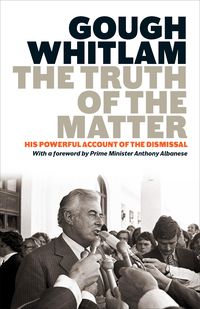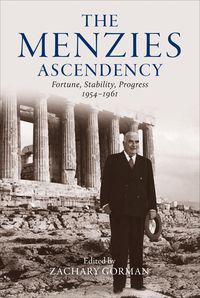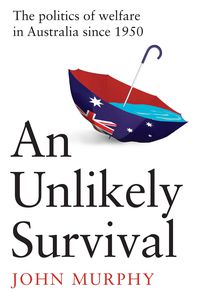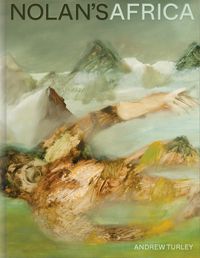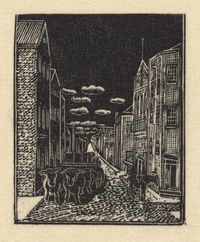Derryn Hinch – Canberra, One Year Later
Senator Derryn Hinch recounts the progress and movements on key politics issues he's been tracking through Parliament.
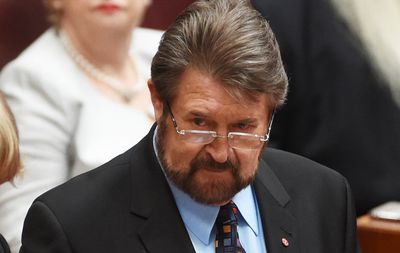
Senator Derryn Hinch recounts the progress and movements on key politics issues he's been tracking through Parliament – one year since he last wrote on these topics in Hinch v Canberra. In his book, Hinch went "behind the headlines", exploring the unthinkable: Derryn Hinch becoming a politician after spending decades fighting with them. Hinch v Canberra is the inside story of Senator Hinch's first year in Canberra.
Two major political issues, in which I was heavily involved, collided in 2018 and that collision let the Turnbull Government off the hook – in the short term. Such disparate issues: dual citizenship and live exports.
Live Exports
For the first time in years it seemed that the live export of sheep to the Middle East could be banned – following the 60 Minutes exposé of northern summer cruelty that saw 2, 400 die of heat stress, being euthanised, or suffocating, or drowning, in metre-high piles of their own excrement. It was the worst example of live export cruelty since the Four Corners expose that saw the Labor Government briefly ban cattle exports.
This time, opponents of live exports adopted the “slowly, slowly, catchee monkey” approach. In the Senate, the Greens, Lee Rhiannon and I co-sponsored a bill to phase out live sheep exports but pushed for an immediate ban on northern summer shipments. The Greens wanted two years. I wanted three or four. The Opposition’s gutsy Joel Fitzgibbon told Laura Jayes on SKY News that Labor was looking for five years. And we all arced up when Bill Shorten, taken by surprise, tried to suggest ten.
Upping the ante, former Liberal Minister Sussan Ley drafted (and introduced) a private member’s bill in the House of Reps, with the public backing of Victoria’s Sarah Henderson, and some verbal support from people like Jason Wood and Warren Entsch. Malcolm didn’t like it. I was still sceptical because, back in 1981 (before social media) I had taken 30,000 signatures to Canberra calling for a ban. This time, my new petition got more than 100,000 signatures.
We were on our way, with numbers building for both bills in the House and the Senate. And then, the High Court scuttled us. The court ruled that Labor’s Senator Katy Gallagher was ineligible because of dual citizenship. That day, four Labor members of the House of Reps resigned, along with Xenaphon’s Rebekha Sharkie, over the same issue. We no longer had the numbers. Everything was hastily postponed until after the July 28 Super Saturday by-election fest.
But I did say on SKY that I would “sign in blood” that 2018 would be the last year Australian sheep would be shipped to the Middle East during the fierce northern summer. Not just a Hinch’s Hunch.
As Rachel Hunter would say: “It won’t happen overnight, but it will happen”.
Dual Citizenship
One of the reasons there was such a long gap between the dual citizenship mass resignations of Labor pollies and the Super Saturday of by-elections – despite Bill Shorten’s “rolled gold” guarantee his party’s verification system was impeccable and there were no imposters in his ranks – was a new government form, loaded with nationality questions, for all by-election candidates. It was circulated to all parties and received bilateral support. I signed off on it, reluctantly, because I have no sympathy for sloppy candidates (nor their parties) who didn’t do their homework. And I say that as the original target of that constitutional nerd, WA barrister John Cameron, who came after me as a probable dual citizen from NZ as he attacked Section 44. He also researched the Greens Scott Ludlam. I was clean. Ludlam was dirty. Ludlam resigned and then the dominoes started to fall.
Waters, Joyce, Nash, Roberts, Lambie, Kakoschke-Moore, Alexander, Gallagher, Sharkie and the slew of Labor MPs.
I said that I had little sympathy for the casualties. Mainly because I go back to something 3AW’s Neil Mitchell said about me nearly a year earlier: “If Hinch can get it right, it can’t be that hard”.
Transvaginal Mesh
As I wrote a year ago:
When I first raised the issue of transvaginal mesh in the Senate and called it “the worst medical scandal for Australian women since Thalidomide” I was derided by several senators as a “shock jock”, harking back to my last occupation which I actually wasn’t.
I now know that I was actually underplaying the severity. A Thalidomide survivors’ group called me from London to say it was worse. In Australia, back in the late 1950s-early 1960s, 200 deformed babies were born to mothers who had taken morning sickness drugs like Distaval. Following our Senate inquiry into transvaginal mesh – with traumatic public hearings across the country – I now believe at least 15,000 Australian women have had their lives destroyed by the polypropylene mesh used as a sling after prolapse or for stress incontinence. We had witnesses who had to lie on the floor or lean on the wall after bravely sitting for 10-15 minutes to give public evidence. Our report, tabled in the Senate, has been described as one of the most savage ever handed down. It calls for mesh to be used only as a last resort. As I write this, multi-million dollar lawsuits, against device manufacturers, like Johnson & Johnson, are going on in Australia, the United States, Great Britain, France and Sweden.
Derryn Hinch's Senate Diary has just ended in Crikey. You can read his last two years of senate diary in Hinch v Canberra: Behind The Human Headline.
If you're a MUP Member, get 25% off using the promo code 'ONEYEARLATER' at checkout.
